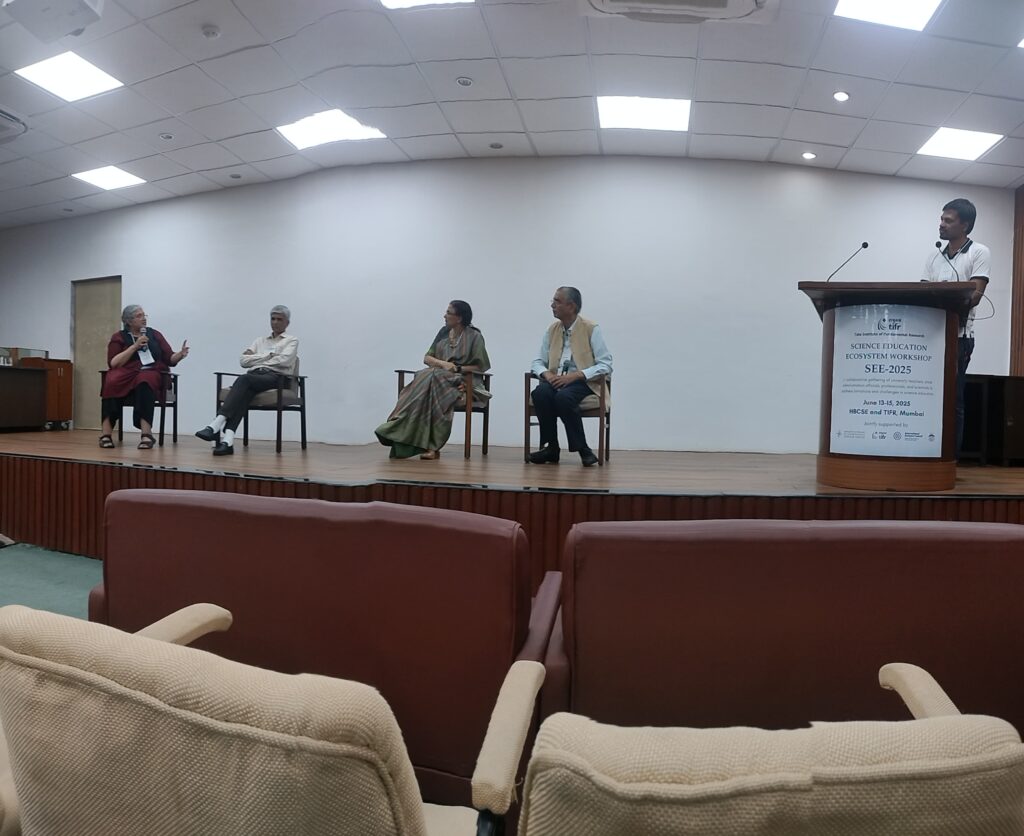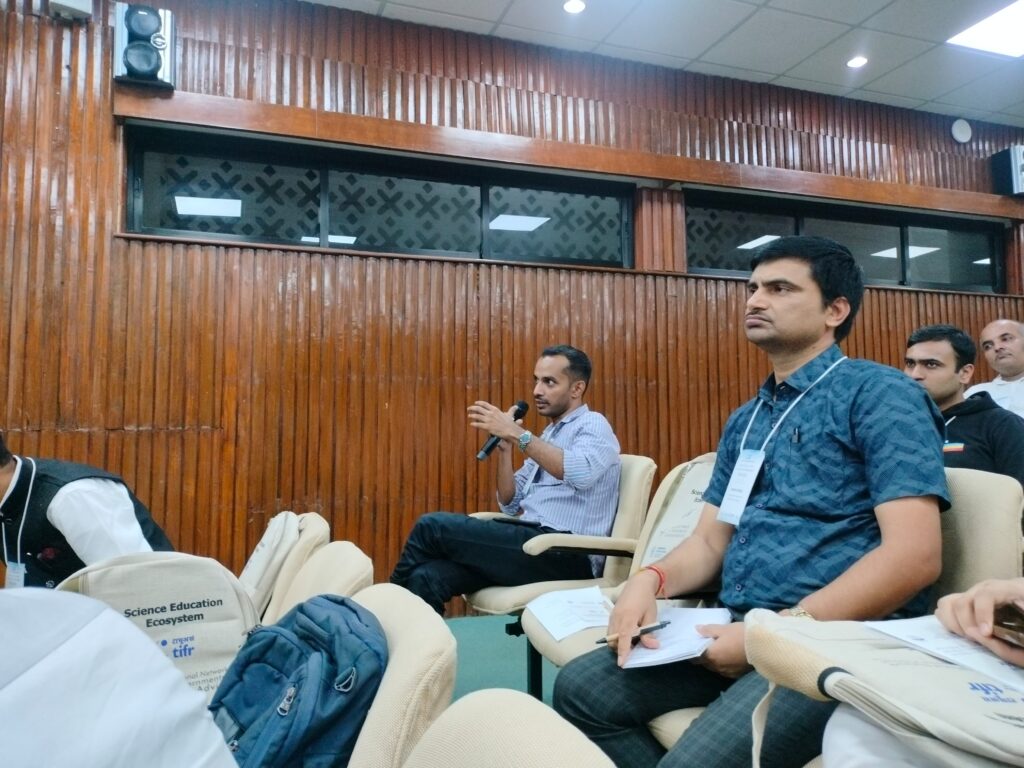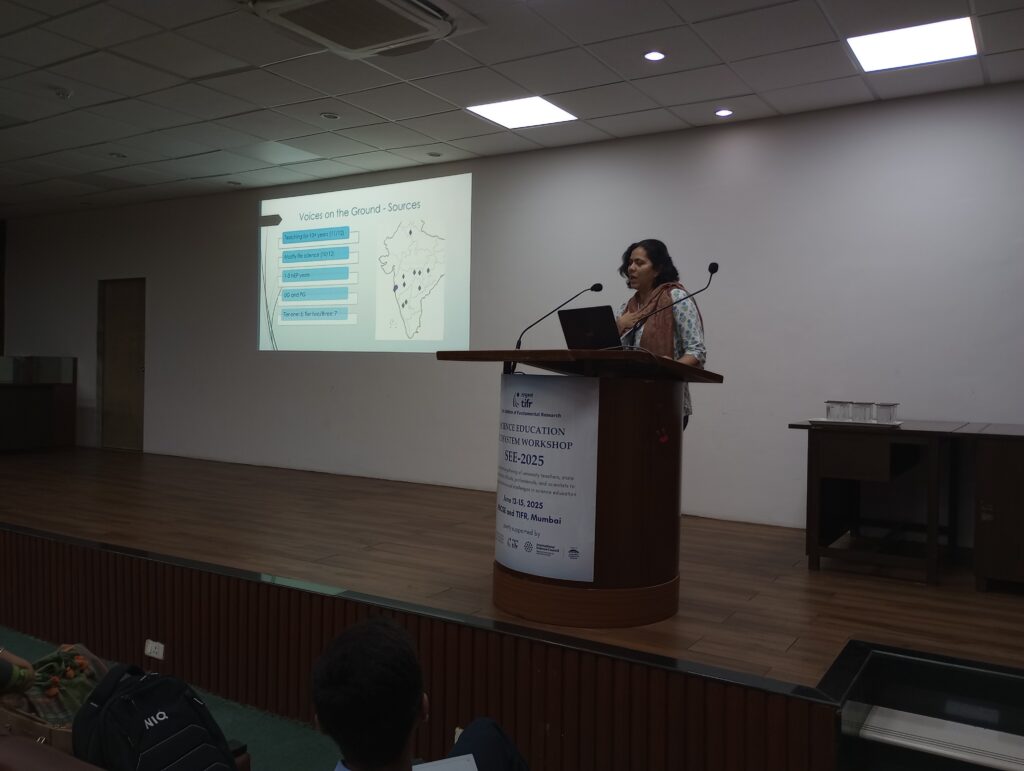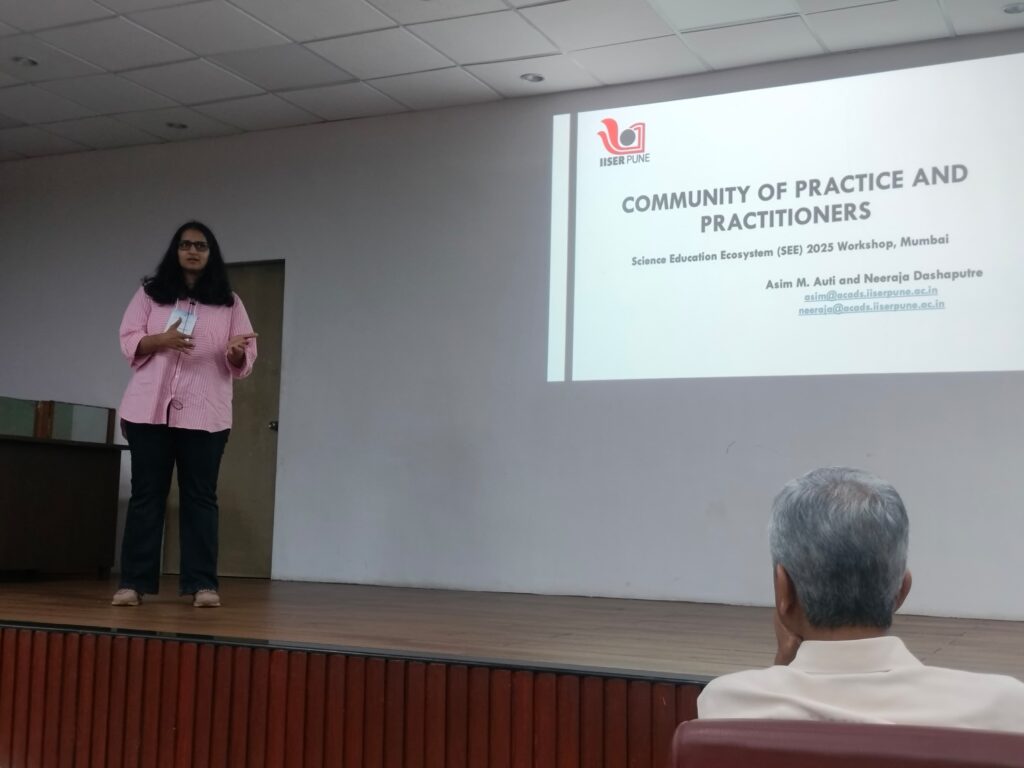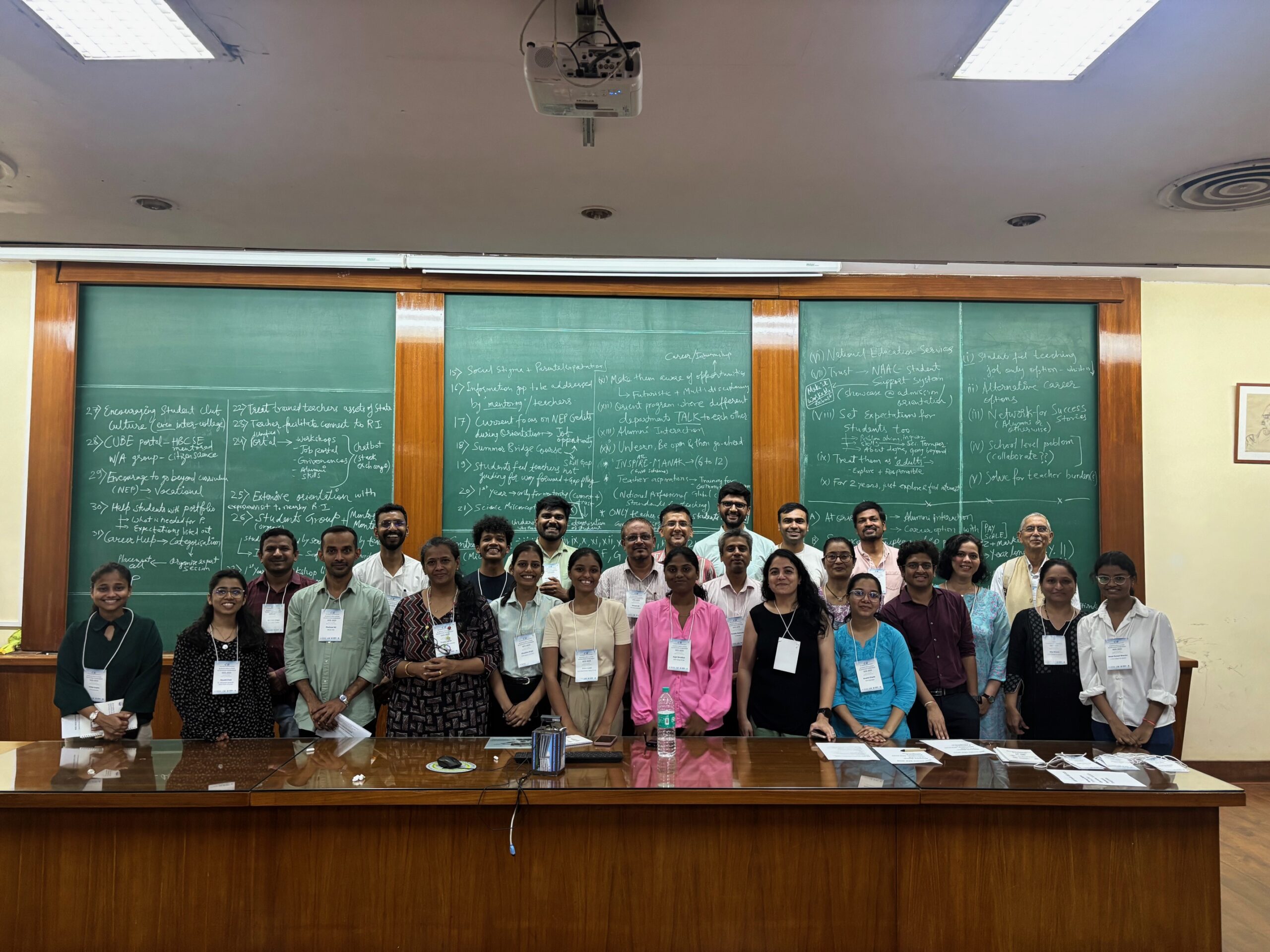Grassroots Workshop – Enhancing Grassroot Science Education in Maharashtra: Challenges and Solutions – India, 2025
Watch the Livestream of the Workshop here.
The Science Education Ecosystem (SEE) 2025 workshop, under the Science Education Initiative, was held from 13 to 15 June 2025 in Maharashtra and brought together university faculty, government officials, and industry leaders to develop actionable solutions for strengthening undergraduate and graduate science education. The workshop titled “Enhancing Grassroot Science Education in Maharashtra: Challenges and Solutions” was organized by the Tata Institute of Fundamental Research (TIFR) Mumbai in partnership with TIFR Mumbai and Hyderabad, the Indian Association of Physics Teachers, the Homi Bhabha Centre for Science Education, and Indian Institutes of Science Education and Research (IISER) Pune. Find the program agenda here.
The workshop was supported by the International Network for Governmental Science Advice (INGSA)-Asia and the International Science Council Regional Focal Point for Asia and the Pacific (ISC RFP-AP), through the Grassroots Science Advice Promotion Awards 2024 program, awarded to Dr. Shadab Alam. The workshop was mentored by Dr Segundo Romero, esteemed Steering Committee member of INGSA-Asia.
Following extensive outreach targeting students and faculties across Maharashtra, the program drew 65 in-person participants (educators, scientists, students, and industry representatives) and more than 400 virtual attendees. Keynote speakers and breakout sessions explored issues such as declining student enrollment, outdated curricula, lack of career awareness, traditional teaching methods, and overworked faculty members.
To address these issues, the workshop recommended enhanced student orientation programs featuring career counseling, peer mentoring, and alumni interactions, along with stronger industry partnerships to provide internships and align with NEP 2020’s on-the-job training. Curriculum reforms should encourage multidisciplinary approaches, flexible structures, and discovery-based learning. Faculty development and incentives, as well as collaborative teaching models, were also highlighted, alongside a hub-spoke model system in which national institutes share resources and reduce administrative burdens.
Future priorities for Maharashtra’s transformation will focus on creating an ecosystem generating demand for science education. Key implementation strategies include: establishing soft skills workshops; developing industry-college partnerships; creating
comprehensive orientation modules; launching science entrepreneurship initiatives; implementing effective science communication programs; developing alumni networks and placement cells; emphasizing evidence-based practices and continuous assessment; and developing technology integration and virtual laboratories.
Next steps focus on formalizing policy recommendations, strengthening the newly formed educator network, and replicating the Maharashtra model nationally. Continued collaboration among educational institutions, government agencies, and industry partners is essential to build an engaging, future-ready science education ecosystem that equips graduates with technical competence and essential life skills.
